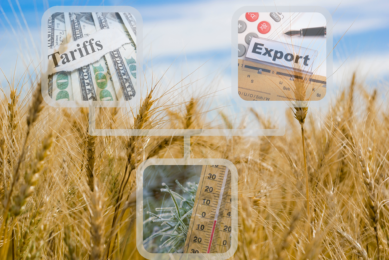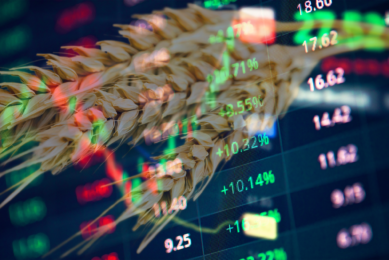Looming state monopoly to hurt Russian grain exports

The Russian government’s plans to get grain exports under full state control, increasingly bother the grain industry, local publication Noviey Izvestia reported, citing market players.
The woes are expressed in response to the statement by Sergey Dankvert, head of the Russian veterinary watchdog Rosselkhoznadzor, who claimed he wants to make grain exports state-controlled.
Dankvert explained that this is needed in order to improve the quality of grain exported from Russia.
There is no problem with the quality of Russian grain
Andrei Sizov, director and co-owner of the analytical centre SovEcon
State measures reducing competitiveness
Arkady Zlochevsky, president of the Russian Grain Union, a prominent association of grain farmers, has revealed that the state has already kicked off the process of seizing control of grain export flows.
Zlochevsky recalled the results of a recent visit of a Rosselkhoznadzor delegation to Egypt, during which the authorities reached an agreement on new requirements for weeds. He stated that the new rules have only led to supply disruptions.
“Our exports were at a standstill for 2 months because of these new requirements. Not because the Egyptians didn’t want to take them. They wanted to and ran around with our exporters to Rosselkhoznadzor asking for their goods to be released,” Zlochevsky said.
“The issue is resolved with bribes. That’s all. You have to pay the inspector money so that he releases the goods. But that’s stupid! We thereby reduce our competitiveness,” he added.
Excessive interference
Andrei Sizov, director and co-owner of the analytical centre SovEcon, said that the quality of Russian grain is not a problem, and the Rosselkhoznadzor control over this issue is, in some ways, excessive.
“There is no problem with the quality of Russian grain,” Sizov said, adding that independent operators, not Rosselhoznadzor, in theory, can confirm the quality of grain destined for exports.
The new initiative could only accelerate the Russian grain industry’s degradation, Sizov is confident.
“The [Russian grain] industry is already dying. It will die even faster. The main reason is the export duties that were introduced in 2021. Agricultural producers pay several tens of percent of their revenue. Not profit, but revenue,” Sizov said.
Sizov explained that competition between grain exporters already lowers the price grain farmers get for selling their products. A looming state monopoly will make the issue even worse.
Rejecting ideas of a free market economy
Noviey Izvestia said that the nationalisation of grain exports is generally in line with the policy pursued by the Russian authorities in the last few years.
Over the past 2 years, the country has clearly shown a trend of rejecting the ideas of a free market economy, also questioning competition and free initiative as a way of economic existence, the publication admitted.











